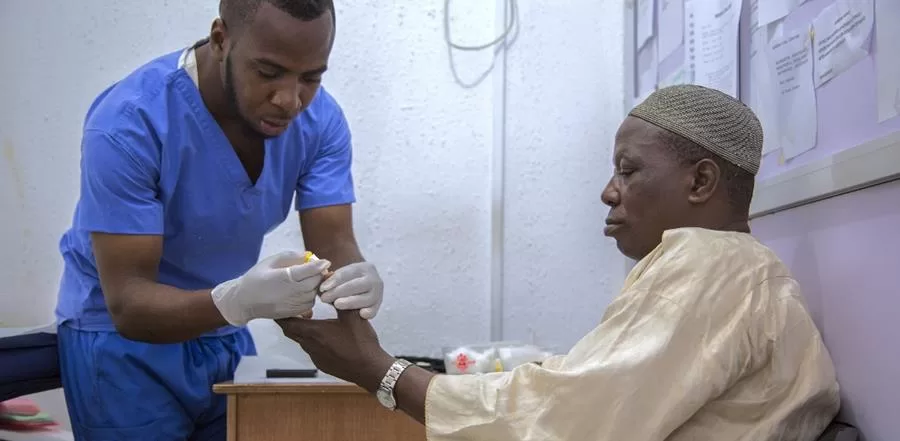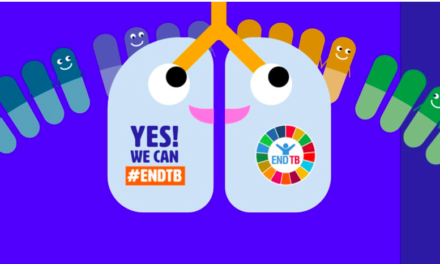
In advance of the World Diabetes Day, which is marked on November 14, WHO is highlighting the need for equitable access to essential care for people affected by diabetes and tuberculosis (TB). Equitable access to care is essential to ending TB, as highlighted in WHO’s End TB Strategy and reinforced in the political declarations of the United Nations high-level meetings on the fight against TB in 2018 and 2023. According to the 2023 WHO Global TB Report, diabetes is one of the key determinants of TB, with just under 400,000 TB episodes attributable to diabetes worldwide. People with diabetes are at higher risk of developing TB and are more likely to experience poor TB treatment outcomes, including death. This emphasises the need for ensuring access to comprehensive care for people affected by both diabetes and TB.
Providing comprehensive people-centred services for people with TB and diabetes often requires collaborative action across different health programmes. To support this collaboration and to facilitate integrated care for people with TB and comorbidities, including diabetes, WHO published the Framework for Collaborative Action on TB and Comorbidities in 2022. The framework includes actions to improve collaboration across respective programmes addressing TB and diabetes, and across sectors to deliver essential care for people with both conditions. WHO’s Multisectoral Accountability Framework for TB reinforces the importance of collaboration across sectors to end the global TB epidemic. WHO is in the process of developing an operational handbook on TB and diabetes, to provide practical guidance on the implementation of current recommendations on TB and diabetes.
“Equitable access to essential care for people with TB and diabetes is something that we must strive for. Optimal management of both conditions has the potential to improve health outcomes, including TB treatment outcomes and health related quality of life“, said Dr Tereza Kasaeva, Director of WHO’s Global Tuberculosis Programme. “The political declaration of the UN high-level meeting on the fight against TB recognises the fundamental importance of addressing the drivers of the TB epidemic, including diabetes, underlining that equitable access to screening, prevention, treatment and co-management is essential.”
Dr Bente Mikkelsen, Director of WHO’s Department for Noncommunicable Diseases emphasised, “As we mark World Diabetes Day, WHO has been calling for equitable access to essential care for people with diabetes. Given that people with diabetes are at higher risk of developing TB, this is especially important and we call on all programmes and partners to channel their efforts into making equitable access a reality for all.”
At the United Nations high level meeting on the fight against TB held in New York in September 2023, Member States committed to enabling universal access to quality TB services as well as actions to address all TB determinants and drivers, such as non-communicable diseases, including diabetes. They also committed to systematic screening, prevention, treatment and care of TB and for related health conditions, including diabetes, firmly reflecting the theme of this year’s World Diabetes Day “equitable access to essential care.” The political declaration arising from the United Nations high level meeting on universal health coverage, also held in New York in September 2023, reinforces this message by advocating for strengthened efforts to address the health needs of all people, in the context of universal health coverage. Ambitious targets related to the diagnosis of at least 80% of people with diabetes and good control of glycaemia for 80% of those diagnosed, were also endorsed by Member States at the World Health Assembly in 2022. Given that diabetes one of the key determinants of TB, achievement of these targets will also contribute to ending TB.










